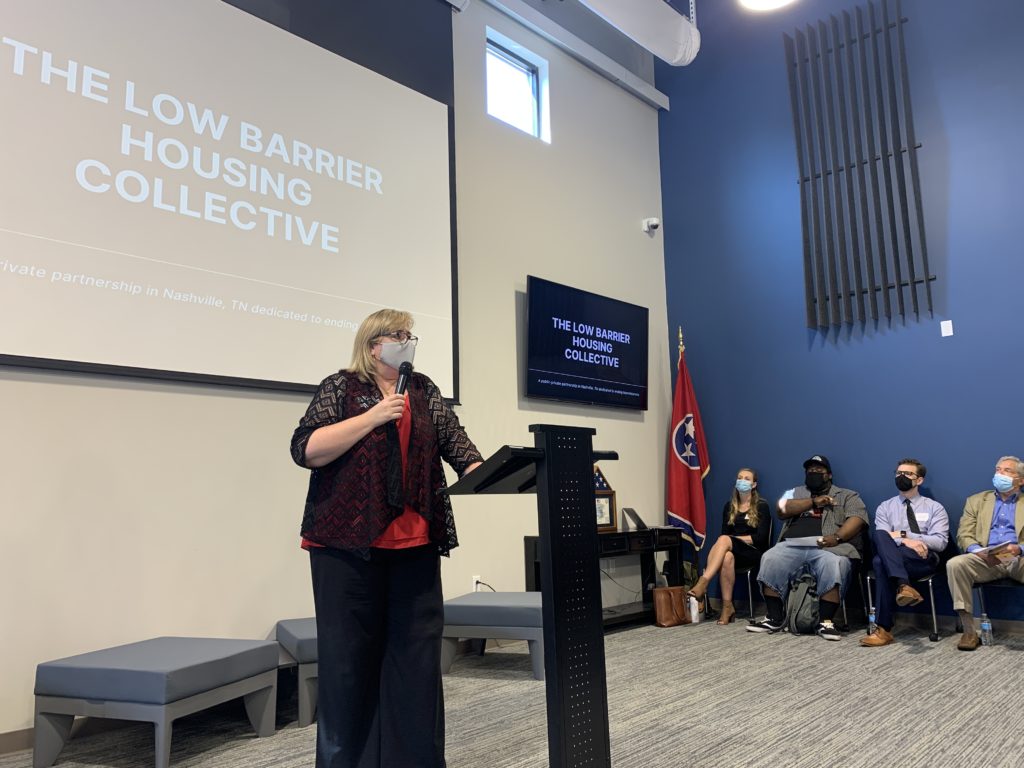
Nashville has more federal housing vouchers on their hands than landlords willing to accept them.
So, the city is stepping in to reward and support landlords who are willing to rent to people experiencing homelessness.
“I remember getting the key to my apartment,” Alex Smith says after taking a long reflective pause. He just signed a lease after being homeless.
“And I’m not a person that breaks down and cries in front of people. I really don’t. But having that key in my hand validated all the 10 years of me being on the street.”
He says that feeling of validation came from asking for help.
The Low Barrier Housing Collective program is a public-private collaboration between nonprofits, landlords and community members to end homelessness. The program has 198 emergency housing vouchers from the American Rescue Plan, in addition to its regular allotment of 18 vouchers per month from the Metropolitan Development and Housing Agency.
“Homelessness is a housing status,” says Judith Tackett, director of Nashville’s Homeless Impact Division. “That means homelessness can only end when we address the housing piece. When we assist people to obtain housing.”
In Tennessee, landlords can discriminate against potential tenants by refusing to accept their housing voucher. So the city is offering things most residents can’t, like $1,000 in addition to the security deposit and covering up to two months of lost rent.
But at the first official event today only one landlord showed up. Pastor Curtis Bryant and his church, Greater Heights Missionary Baptist, are no stranger to creating affordable housing. He says his North Nashville church is going to join the collective.
“We have a piece of property we want to dedicate to the homeless initiative,” Bryant says. “We are looking at how we may be able to further that aim working with Metro government.”
Lizzie Goddard, housing locator at the Metro Homeless Impact Division, says the event was primarily informational and that there will be more efforts targeted specifically at landlords, including one-on-one meetings.
Meanwhile, Smith says adding more landlords with get more of his friends comfortable about going into housing.
“We need more ways to empower that we’re still human,” he says. “Because a lot of our friends don’t feel like it and that’s a terrible feeling but that’s what we go through. A number, a case.”
How it works
- Landlords contact the collective to set up orientation and ask specific questions.
- Landlord sets the parameters of what kind of tenant they’re willing to accept. This isn’t a legally binding agreement.
- Listing
- Move in
- Landlord and tenant continue to receive support services
Correction: An earlier version of this story misstated the number of housing vouchers the program has available. It is 198 through the American Rescue Plan, not 190. The program is also receiving 18 vouchers per month from the Metro Development and Housing Agency.
This story has also been updated to include a comment from Lizzie Goddard of the Metro Homeless Impact Division.

